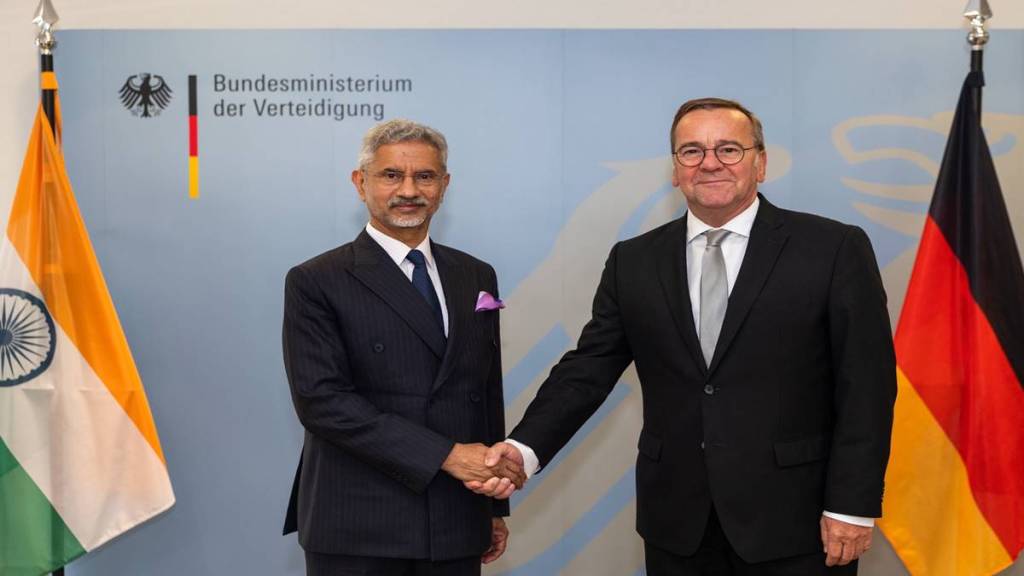The India-Germany Strategic Partnership, rooted in shared democratic values and historical ties, continues to grow across sectors like trade, defence, and technology. External Affairs Minister S Jaishankar’s visit to Germany has further deepened this bond, with a focus on addressing global challenges and leveraging new opportunities. His meetings with German leaders in Berlin focused on expanding bilateral collaboration and strengthening strategic ties.
Trade and Economic Collaboration
Trade between India and Germany stands at approximately USD 30 billion annually, with significant investments flowing in both directions. As Jaishankar remarked, “There is still a vast potential to be realized,” pointing to untapped opportunities that could further boost economic ties. Germany’s investment in India, currently around USD 25 million, highlights the strategic value it places on this partnership. However, Jaishankar noted, “Germany is a crucial partner in accelerating our growth and development,” underscoring the mutual benefits of deepening economic cooperation.
India’s rising industrial capacity positions it as an attractive partner for Germany in building diversified production networks and resilient supply chains. The forthcoming `Asia-Pacific Conference of German Businesses’ in New Delhi, scheduled for October 2024, is expected to provide a significant platform for advancing business engagement.
Both countries share a strong commitment to sustainable growth. As Jaishankar pointed out, “As India’s growth unfolds, we all understandably want it to be cleaner and greener.” The `Green and Sustainable Development Partnership’, established two years ago, is a vital component of this vision. The partnership reflects the shared objective of achieving environmentally sustainable economic development, with Germany bringing its leadership in green technology and India leveraging its vast potential for clean energy transition.
Defence and Security Cooperation
Defence and security have emerged as core areas of the India-Germany strategic relationship. This year, the two countries conducted their first-ever joint air exercises, marking a significant step in defence cooperation. He expressed optimism about future collaborations, noting, “We hope to welcome your naval ships in Goa next month,” as the two nations seek to strengthen their maritime cooperation.
Discussions between Jaishankar and German officials, including his counterpart Annalena Baerbock, explored further cooperation in defence industries. “We would like to explore how our defence industries can cooperate more closely,” said the minister, stating the need for joint ventures in defence technology and production. With both nations committed to a rules-based international order, their defence and security partnership is expected to continue expanding, particularly in response to regional and global security challenges.
His meetings with security and foreign policy experts organized by the Munich Security Conference also delved into the changing global order and strategic convergences between India and Germany. “We exchanged perspectives on multipolarity, security challenges, and the strategic convergences between India and Germany,” he said, highlighting the growing alignment in their global outlook.
Technological and Scientific Collaboration
Science and technology cooperation between India and Germany is celebrating its 50th year, reflecting a long history of innovation-driven partnership. He stressed the significance of this relationship, stating, “Our consultations precede the impending meeting of the Inter-Governmental Consultations later this year,” pointing to the need for continued technological exchange.
Germany’s advanced technological capabilities and India’s rapidly growing tech sector present numerous opportunities for collaboration in fields such as artificial intelligence, space technology, and biotechnology. As he noted, “We would like to hold an early meeting of the Trade and Technology Council,” signalling India’s eagerness to strengthen cooperation on cutting-edge technologies through the newly established Council between India and the European Union (EU).
The Free Trade Agreement (FTA) with the EU is another critical area of focus. He expressed hope that with the incoming European Commission, progress on the FTA could be accelerated. “We count on Germany’s support for that,” he said, underlining Germany’s pivotal role in advancing India-EU relations.
A Strategic Partnership for Global Challenges
Both India and Germany play active roles in international forums, contributing to solutions for global challenges such as climate change, cybersecurity, and geopolitical stability. Jaishankar’s discussions with Jens Plotner, Security and Foreign Policy Advisor to Chancellor Olaf Scholz, underscored the importance of aligning strategic priorities in multilateral platforms like the UN Summit of the Future, where Germany is a co-facilitator.
During his interactions with German policymakers, Jaishankar highlighted the potential for collaboration in third countries, particularly in areas where both nations have shared interests. “We exchanged views about how we can work together where possible in third countries,” he said, illustrating the broader scope of their international cooperation.
Looking Ahead
The India-Germany Strategic Partnership is set to enter a new phase of growth, bolstered by the recent high-level engagements. The upcoming Intergovernmental Consultations (IGC), to be held in India, is expected to further deepen collaboration across sectors such as trade, defence, and technology.


